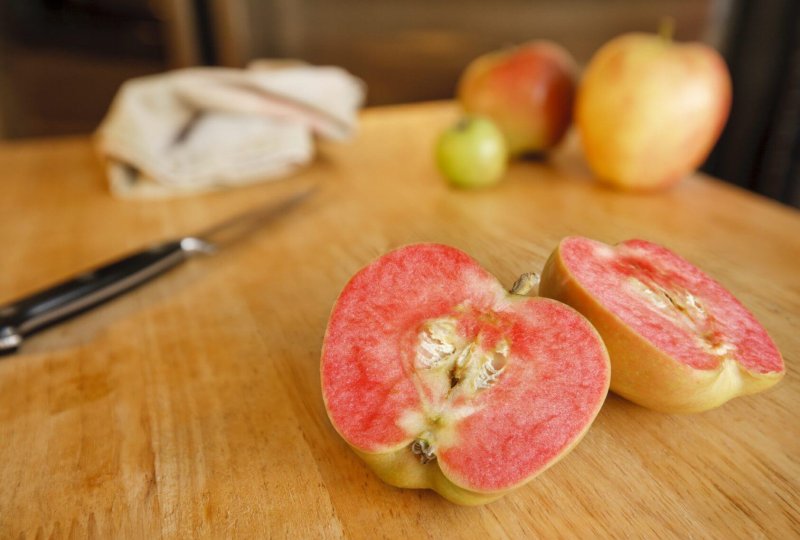To an unsuspecting consumer, these delicate apples could easily be mistaken for the commonplace Gala or Braeburn varieties.
But inside, the fruits reveal their deception — their crisp flesh flaunts a striking red hue instead of the typical off-white color marked by most commercial apples. Known as Mountain Rose, Hidden Rose or Airlie Red Flesh apples, these striking apples tout a sugary aroma and an equally saccharine taste with notes of mild tartness.
The presence of red flesh in apple cultivars is caused by the MYB10 gene, a localized genetic protein and transcription factor for anthocyanin pathways. Anthocyanins — which are a type of water-soluble polyphenolic pigment — give fruits and vegetables their signature shades of red, purple, blue or black. Consumers are probably familiar with anthocyanins from the produce aisle: purple potatoes and purple cauliflower, for instance, are those colors because of anthocyanins.
…
With their extensive quantities of antioxidative phenolics — a class of chemical compounds naturally produced by plants — and anthocyanins, red-fleshed apples boast several nutritional and health benefits. Anthocyanin-rich foods help maintain eye health and aid in the prevention of cardiovascular diseases, neurodegenerative diseases, diabetes and cancer, according to a 2015 study published in the “Journal of Functional Foods.”































